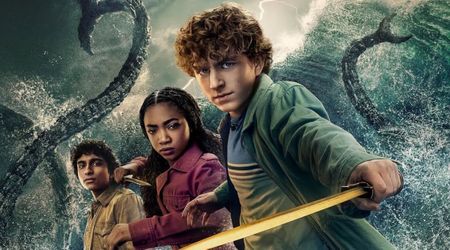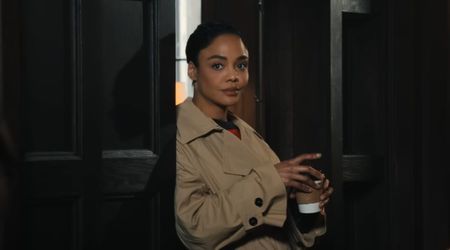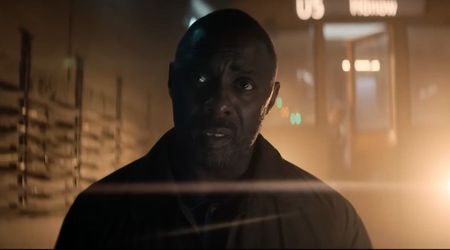Slutsky & Bitchin' | Why does good fantasy writing always come at the cost of 'burying the gay'?

Slutsky: I have been thinking a lot about audience reception theory this week -- where the audience constructs meaning for a pop culture text, for instance. It could align with what pop culture creators are trying to say which is known as the "dominant reading", usually replicating dominant identities and culture. It could be a "negotiated reading", where the audience constructs meaning over and above the dominant reading to reflect their own marginalized backgrounds or culture. Or it could be "oppositional readings", where the meaning ascribed by an audience is opposed to the meaning the creators intended.
Bitchin': Like how the relationship between Spock and Captain Kirk was coded as homoerotic by the queer community. "Shipping" has become a much-abused term nowadays. But at one point in time, there was very little LGBTQ+ representation within popular media or even shows with a feminist edge to them. The only way to see queer lives being reflected in popular culture icons or create feminist icons like Princess Leia (even if she had to parade around in a slave-girl bikini costume) was to create "negotiated" readings. Of course, the actors playing the parts or the writers could choose to ignore this meaning-construction or actively play up the queer or feminist subtext.
Slutsky: And isn't that what a lot of fan fiction is about? Bringing the queer or feminist subtext to the foreground? Especially when most mainstream shows are driven by the main lead who is usually white, male, cis and predominantly heterosexual.
Bitchin': Precisely. Even now, unless the show is explicitly an LGBTQ+ show like 'Work in Progress' or 'The L Word Generation Q', there is seldom any main lead character coded as queer within a show. Similarly, shows will rarely have a feminist take unless it is primarily aimed at girls or women -- like 'Anne with an E'.
Slutsky: I can count on one hand the number of mainstream sci-fi/fantasy shows with a queer lead -- there is Jack Harkness in 'Torchwood', and Sara Lance in 'Legends of Tomorrow'. So yeah, not many, when you think about it. But you do have lots of queerbaiting.
Bitchin': Aah, yes queer-baiting -- where TV writers see audiences shipping characters of the same sex together and then proceed to drop vague canonical hints that there might be something more between them but never go beyond keeping this "attraction" as a subtext.
Slutsky: Fantasy and sci-fi books have always been far more open to alternate identities than other mainstream genres. This is why it is such a pity to see sci-fi, fantasy or supernatural TV shows not explore queer leanings of the main leads like in 'Supernatural'. The mostly female audience of the show 'reads' Dean as bisexual. But 'Supernatural', originally, was coded as an all-American male adventure series with rock music, a muscle car, and plenty of guns, action, and violence. It acquired an LGBTQ+ and female following because the scripts often had the all-male (and handsome) cast explore emotional baggage and trauma like abandonment, abuse, and being outliers -- paralleling real-life narratives of people with marginalized identities. This was unheard of in a "manly show".
But because of its male machismo leanings, there are also no well-written female characters -- at least none who can be "shipped" with the male leads. As a result, both female and LGBTQ+ fans liked to ship Dean and Castiel, reading romantic intentions in the strong and intimate friendship between the two. This is when writers and actors began the queerbaiting through behind-the-scenes footage, or "jokes" or one-liners that hinted at Dean and Castiel being more than just friends.
Bitchin': To be honest, I am so done with queerbaiting. There are so many shows that don't want to be seen as 'un-woke' and/or want a boost in ratings by attracting additional eyeballs from the LGBTQ+ community. At the same time, they don't want to scare the mainstream or family audience away either. So they resort to queerbaiting.
A show like 'The Magicians' is, at least superficially, a post-queer narrative with the writers making sure audiences can, technically, ship any character with another. Quentin, the main lead, was bisexual, falling in love with both Alice and Eliot. And yet, only his romance with Alice was properly explored. Quentin was killed off before there was any significant 'real timeline' relationship between him and Eliot.
Slutsky: Writers (and actors) always defend decisions like that as "good writing". And to be sure, killing off the main lead and having the show revolve only around the side-characters is a brave move. But why does brave or strong writing always have to use the "bury the gay" trope? Why can't good writing have a main lead of a fantasy show explore a full-fledged, canonical queer relationship? Is it too much to ask circa 2020?
The last good TV writing that did not "bury the gay" was 'adult' shows like 'Euphoria' when Zenadya's Rue starts falling in love with Jules, a transgender girl, who is coming to terms with her own femininity and 'Mrs Fletcher' in which the female lead explores her bisexuality.
Bitchin': Yes. And this means that while mainstream shows targeted at a mature audience are getting better at showing protagonists in queer relationships, the sci-fi and fantasy genres -- targeted at young adults or young millennials, which should technically be most open to alternate identities -- are also the shows with the most queerbaiting. And this is just sad because people at that age are getting the message that queer stories end in tragedy and queer relationships are doomed. And that's a depressing notion, isn't it?
Slutsky & Bitchin’ is a weekly column that will examine the highs and lows of pop culture and media from a feminist POV. The column is published every Saturday.










